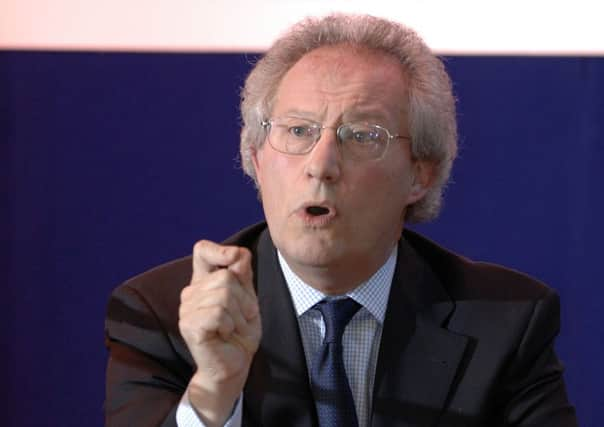Scottish independence: McLeish No vote warning


He warned that the “difficult” Westminster system may thwart the pledges of Labour, the Conservatives and Liberal Democrats to hand greater devolution to the Scottish Parliament.
Advertisement
Hide AdAdvertisement
Hide AdMr McLeish told ITV’s Representing Border it was a big mistake not to have a second question on the referendum ballot paper of more Holyrood powers, as he raised doubts about the abilities of the pro-union parties to deliver these.
“I argued forcibly for a second question on the ballot paper,” Mr McLeish said.
“We could have had a vote for independence and if it was No, we could’ve said what kind of Scotland we wanted.
“That’s not available. So the real danger is that the unionist parties are now bidding up offers in terms of more policies, in terms of more taxes.
“But at the end of the day I think the debate has moved on and quite frankly if you vote No people will be a bit concerned, especially in relation to the general election in Westminster in 2015.”
All three pro-union parties have published a joint-pledge to deliver more powers after the referendum, with Prime Minister David Cameron and opposition leader Ed Miliband promising that greater devolution will be in their manifesto ahead of next year’s election. Labour has called for increased tax-varying powers and control over some elements of welfare and benefits policy, while the Conservatives have taken a more radical approach calling for Holyrood to be given given full income tax powers, making the Scottish Parliament accountable for 40% of the money it spends.
But Mr McLeish added: “I think what we’ve got ourselves into is a major miscalculation. We should’ve had a second question. That would’ve said `Look we don’t want independence, but what we do want is a substantial element of more devolution. That’s not available. So it’s not a matter of trust or confidence.
“Westminster is very difficult. There’s another year before the election. Three parties are bidding up what they might do. None of them might be in power as a single entity, they might be in coalition.
“The uncertainty about the future means people must think very carefully when they’re voting No.”